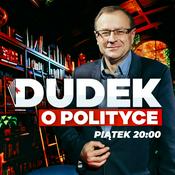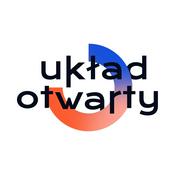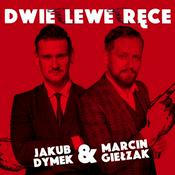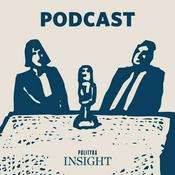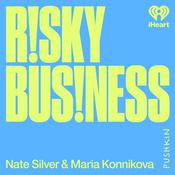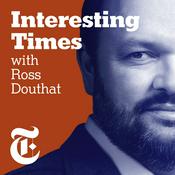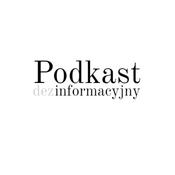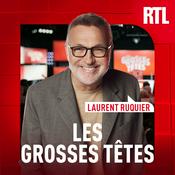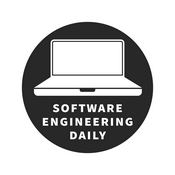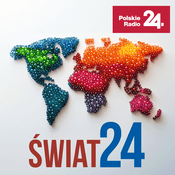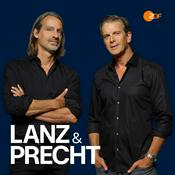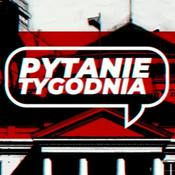Dostępne odcinki
5 z 218
- Quantum Compilers: Noise-Cancelling Headphones for Qubit CodeThis is your Quantum Bits: Beginner's Guide podcast.This week, something quietly revolutionary happened in quantum computing. At IBM’s lab in Yorktown Heights, researchers unveiled an update to their Qiskit SDK that feels less like a software patch and more like noise-cancelling headphones for quantum code.I’m Leo, your Learning Enhanced Operator, and what caught my eye is a new wave of “error-aware compilers” and high-level quantum programming tools. Picture this: instead of hand‑tuning fragile circuits gate by gate, you describe the problem in near‑everyday math, and the system automatically reshapes it to survive real hardware noise. Google’s OpenFermion team has been doing this for chemistry, and now IBM and startups like Quantinuum and Pasqal are racing to generalize it.Why does this matter? Think about the headlines this week around climate tech and grid instability in Europe. Classical supercomputers are already straining to simulate complex energy markets. Quantum hardware could help, but only if non‑physicists can actually program the machines. These new tools are like turning quantum from assembly language into Python.In the control room of a superconducting quantum processor, the air hums with cryogenic pumps. Cables dive into a gleaming dilution refrigerator, stepping temperatures down to a few thousandths of a degree above absolute zero. Inside, qubits whisper to each other in microwave tones. Traditionally, to run an algorithm like Quantum Phase Estimation, I’d manually schedule pulses, worrying about crosstalk, coherence times, and calibration drift.With the latest breakthrough, I can instead express the problem as, say, “find the ground state energy of this molecule” in a domain‑specific language. The compiler then maps that request onto hardware, inserts dynamical decoupling pulses, restructures the circuit to minimize two‑qubit gates, and uses real‑time feedback from calibration data. It’s like asking for a symphony and having the software automatically assign the right instruments, tempos, and acoustics for the hall you’re actually in.According to reports from the IEEE Quantum Week workshops, these techniques are already reducing circuit depth by 30 to 50 percent on some noisy devices. That directly translates to more reliable runs today, not in some distant fault‑tolerant future.I see a parallel to recent AI regulation debates in Brussels and Washington. Lawmakers don’t need to understand every transistor in a GPU; they need tools that surface behavior at the right abstraction level. In the same way, quantum programming is climbing the ladder of abstraction so domain experts in finance, chemistry, or logistics can harness qubits without living in the cryostat.The middle of this story is messy: noisy devices, limited qubits, imperfect software. But the arc is clear. Each new compiler, each high‑level language, pulls quantum computing a little closer to everyday problem solvers.Thanks for listening. If you ever have questions or topics you want discussed on air, send an email to [email protected]. Don’t forget to subscribe to Quantum Bits: Beginner’s Guide. This has been a Quiet Please Production, and for more information you can check out quiet please dot AI.For more http://www.quietplease.aiGet the best deals https://amzn.to/3ODvOtaThis content was created in partnership and with the help of Artificial Intelligence AI--------3:18
- QuEra's Quantum Leap: 3,000 Qubits, Algorithmic Fault Tolerance, and the Future of ProgrammingThis is your Quantum Bits: Beginner's Guide podcast.You’re listening to Quantum Bits: Beginner’s Guide, and I’m Leo — Learning Enhanced Operator — coming to you from a lab that hums like a refrigerator full of lightning.According to QuEra Computing’s announcement out of Boston this week, 2025 is officially “the year of fault tolerance.” They, together with Harvard, MIT, and Yale, just ran a 3,000‑qubit neutral‑atom processor continuously for over two hours, with error rates that actually improved as they scaled up to 96 logical qubits. That’s not just a lab stunt. It’s the moment quantum computers started behaving less like prototypes and more like infrastructure.You asked: What’s the latest quantum programming breakthrough, and how does it make these machines easier to use?Here’s the headline: QuEra and its academic partners introduced what they call Transversal Algorithmic Fault Tolerance — AFT — a new way to write and compile quantum programs so that every logical layer of your algorithm needs only a single global error‑checking round instead of dozens. That slashes the overhead of error correction by a factor of ten to a hundred and turns programming a fragile, stuttering device into programming something that feels almost…reliable.Picture the quantum computer as a symphony hall of ultracold atoms, each one a qubit floating in a vacuum chamber the size of a dishwasher. Lasers paint geometric patterns in crimson and violet across the array, shuttling atoms around like dancers changing positions between scenes. In the old days, every bar of the music had to be checked and re‑checked for wrong notes; your algorithm crawled forward under the weight of constant diagnostics. With AFT, the score is reorganized. Gates are laid out so that error correction sweeps across the entire orchestra in a single, clean pass per layer. Same physics, radically better choreography.For programmers, that means you describe the problem — chemistry, logistics, finance — at a higher level. The AFT‑aware compiler reshapes your circuit into blocks that are naturally compatible with the error‑correcting code. You write “simulate this material” or “optimize this route,” and the stack takes care of when to measure syndromes, how to insert magic state distillation, how to keep those neutral‑atom qubits aligned like soldiers on parade.Look at the news cycle: governments from Washington to Tokyo are talking about quantum like they once spoke about oil and railways. Fermilab is repurposing particle‑accelerator tech to build ultra‑coherent processors; Oak Ridge is funding a common software ecosystem so exascale supercomputers and quantum chips can tag‑team the hardest simulations. While politicians argue about budgets on the evening news, in the basement labs we’re learning how to make quantum programming feel as routine as calling a cloud API.Thanks for listening. If you ever have any questions or have topics you want discussed on air, just send an email to [email protected]. Don’t forget to subscribe to Quantum Bits: Beginner’s Guide. This has been a Quiet Please Production, and for more information you can check out quietplease dot AI.For more http://www.quietplease.aiGet the best deals https://amzn.to/3ODvOtaThis content was created in partnership and with the help of Artificial Intelligence AI--------3:10
- Quantum Programming Revolution: AI Compilers Tame Qudit ComplexityThis is your Quantum Bits: Beginner's Guide podcast.You’re listening to Quantum Bits: Beginner’s Guide, and I’m Leo – that’s Learning Enhanced Operator – coming to you with the latest ripples from the quantum frontier.Picture this: last week at Fermilab’s “Exploring the Quantum Universe” symposium, researchers unveiled the next phase of their Superconducting Quantum Materials and Systems Center, SQMS 2.0. They’re chasing a 100-qudit processor – not just qubits, but qudits – higher-dimensional quantum units. That’s like upgrading from coin flips to loaded dice, giving programmers richer moves in a single step and shrinking the complexity of their code.At almost the same time, a team in China, led by Pan Jianwei at the University of Science and Technology of China, used their Zuchongzhi 2.0 superconducting chip to create a new digital state of matter with super-stable “corner” modes. Think of it as building a castle where only the four towers matter, and those towers barely crumble, no matter how hard the storm hits. For programmers, that kind of hardware stability is a dream: fewer errors, fewer retries, cleaner results.So, what’s the latest quantum programming breakthrough, and how does it make all of this easier to use?The real shift is that programming a quantum device is starting to feel less like soldering in the dark and more like using a high-level language. At Stanford, researchers recently demonstrated a tiny device that entangles light and electrons at near room temperature, while AI-driven compilers – described in a recent Nature Communications review – are learning to translate messy, human-friendly code into exquisitely optimized quantum circuits.Here’s what that looks like from my console. I’m in a dim, humming lab, cryostat hissing at a few millikelvin, the quantum chip hidden in a silver can. I write something simple and human, like: “simulate this molecule” or “optimize this network.” The AI-based compiler then goes to war on my behalf, pruning gates, reordering operations, and mapping everything onto the device’s quirks: which qubits talk, which are noisy, which behave like those Zuchongzhi-style stable corners.Under the hood, it uses reinforcement learning to search through billions of circuit possibilities, and generative transformer models – cousins of the language AIs you know – to propose compact quantum circuits that just work. Instead of hand-stitching every gate, I’m steering at the algorithmic level while the system auto-pilots through the hardware turbulence.In a world obsessed with geopolitical “quantum pivots” and national strategies, this is the quiet revolution: quantum programming getting friendlier, faster, and more forgiving, so more people can actually use these machines.Thank you for listening. If you ever have questions or topics you want discussed on air, send an email to [email protected]. Don’t forget to subscribe to Quantum Bits: Beginner’s Guide. This has been a Quiet Please Production, and for more information you can check out quiet please dot AI.For more http://www.quietplease.aiGet the best deals https://amzn.to/3ODvOtaThis content was created in partnership and with the help of Artificial Intelligence AI--------3:11
- Quantum Computing's Quiet Revolution: AI-Driven Compilers Unleash AccessibilityThis is your Quantum Bits: Beginner's Guide podcast.You’re listening to Quantum Bits: Beginner’s Guide, and I’m Leo – that’s Learning Enhanced Operator – coming to you with the smell of liquid helium in the air and server fans humming like a mechanical choir.I’m standing, virtually, inside the Israeli Quantum Computing Center at Tel Aviv University, where this week Quantum Machines and Qolab announced the first deployment of John Martinis’s new superconducting qubit device. According to their joint release, it is the first time this next‑generation processor is plugged into an international, cloud‑accessible hub. Picture a gleaming dilution refrigerator, cables descending like golden vines, but behind it all, what really changed isn’t just the hardware. It’s how we program it.So, what’s the latest quantum programming breakthrough? I’d point to the quiet revolution in software abstraction – things like Q‑CTRL’s new Quantum Utility Block architecture and IBM’s expanding Qiskit Functions – that turns these frigid, fragile machines into something that feels, to you, almost… push‑button. Q‑CTRL describes it as infrastructure software that virtualizes quantum computers: instead of wrestling with error‑prone gates and calibration files, you ask for a chemistry simulation or an optimization task, and their stack chooses the qubits, layouts, and error‑suppression strategies automatically.Under the hood, this is wild. Imagine trying to choreograph hundreds of dancers on an icy stage where the floor randomly vanishes beneath their feet. Traditional compilers tiptoe around the cracks. These new AI‑driven compilers – Q‑CTRL reports a 300,000‑fold speedup in a key layout step using NVIDIA GPUs – redesign the entire dance in milliseconds, so the performers almost never hit a hole. To you, the user, it feels like a normal programming call. To the machine, it’s acrobatics at the edge of physics.And that’s the real breakthrough: programming models that hide cryogenics, noise models, and pulse sequences behind clean, high‑level interfaces. The Quantum Insider recently highlighted how photonic systems like Quandela’s Lucy, now wired into the Joliot‑Curie supercomputer, are being driven by similar abstractions so quantum jobs can sit beside classical workloads without anyone babysitting the qubits. You write code; orchestration layers handle which processor, which qubit type, which error controls.Look back at that IQCC lab in Tel Aviv: multiple quantum modalities, all wired into classical high‑performance computing and global cloud access. The hardware is impressive, but the magic is that a student in Boston or Bangalore can log in and run an experiment without knowing how to tune a microwave pulse at 20 millikelvin. The software has become the universal translator between human intent and quantum behavior.Thanks for listening. If you ever have any questions or have topics you want discussed on air, just send an email to [email protected]. Don’t forget to subscribe to Quantum Bits: Beginner’s Guide. This has been a Quiet Please Production; for more information, check out quiet please dot AI.For more http://www.quietplease.aiGet the best deals https://amzn.to/3ODvOtaThis content was created in partnership and with the help of Artificial Intelligence AI--------3:21
- Quantum Computing Unleashed: UnitaryLab 1.0 Democratizes Quantum PowerThis is your Quantum Bits: Beginner's Guide podcast.Now I have the latest quantum computing breakthroughs. Let me create an engaging first-person narrative script for Leo that incorporates these recent developments.---Welcome to Quantum Bits: Beginner's Guide. I'm Leo, your Learning Enhanced Operator, and today we're diving into something that just cracked open the quantum world in ways I honestly didn't expect to see this soon.Picture this: it's early December 2025, and halfway across the world in Chongqing, China, researchers just unveiled UnitaryLab 1.0, what they're calling the world's first quantum scientific computing platform. I remember when quantum computing felt like an exclusive club, right? A place where only people with advanced PhDs and access to billion-dollar facilities could play. But this platform changes that equation entirely.Here's what makes it revolutionary. The platform is built on something called "Schrödingerization" quantum algorithms, developed by researchers Jin Shi and Nana Liu. Now, I know that sounds like pure science fiction, but stay with me. Imagine traditional quantum computing as trying to solve an impossibly complex maze blindfolded. These algorithms essentially give us a map. They handle the kinds of mathematical problems that make classical computers absolutely collapse under their own weight, yet they do it efficiently, almost elegantly.But here's the real breakthrough, and this is why I'm genuinely excited. UnitaryLab 1.0 was specifically designed to lower the technical barriers. The institute deliberately engineered accessibility into its DNA. Think about it like the difference between needing a pilot's license to fly a plane versus a regular person using an autopilot system. The platform abstracts away so much complexity that scientists in fields like healthcare, materials research, and energy can actually use quantum power without needing to be quantum specialists.Around the same time, Stanford researchers achieved something equally stunning with quantum signaling, and Q-CTRL announced they'd achieved true commercial quantum advantage in quantum navigation, beating classical systems by over 100 times. Meanwhile, AI-driven approaches for quantum circuit optimization hit records that sound almost absurd, like 300,000 times faster compilation speeds working with NVIDIA.What's happening is this convergence where software makes quantum accessible. It's not just about having more powerful hardware anymore. It's about having tools that translate quantum's raw power into something engineers and scientists can actually wield. We're watching the democratization of quantum computing happen in real time.The future doesn't look like a handful of quantum elite anymore. It looks like quantum becoming a practical tool across industries. And that changes everything.Thanks for joining me on Quantum Bits. If you have questions or topics you'd like us to explore, send an email to [email protected]. Please subscribe to Quantum Bits: Beginner's Guide and remember, this has been a Quiet Please Production. For more information, visit quietplease.ai.For more http://www.quietplease.aiGet the best deals https://amzn.to/3ODvOtaThis content was created in partnership and with the help of Artificial Intelligence AI--------3:18
Więcej Wiadomości podcastów
Trendy w podcaście Wiadomości
O Quantum Bits: Beginner's Guide
This is your Quantum Bits: Beginner's Guide podcast.Discover the future of technology with "Quantum Bits: Beginner's Guide," a daily podcast that unravels the mysteries of quantum computing. Explore recent applications and learn how quantum solutions are revolutionizing everyday life with simple explanations and real-world success stories. Delve into the fundamental differences between quantum and traditional computing and see how these advancements bring practical benefits to modern users. Whether you're a curious beginner or an aspiring expert, tune in to gain clear insights into the fascinating world of quantum computing.For more info go to https://www.quietplease.aiCheck out these deals https://amzn.to/48MZPjs
Strona internetowa podcastuSłuchaj Quantum Bits: Beginner's Guide, Global News Podcast i wielu innych podcastów z całego świata dzięki aplikacji radio.pl

Uzyskaj bezpłatną aplikację radio.pl
- Stacje i podcasty do zakładek
- Strumieniuj przez Wi-Fi lub Bluetooth
- Obsługuje Carplay & Android Auto
- Jeszcze więcej funkcjonalności
Uzyskaj bezpłatną aplikację radio.pl
- Stacje i podcasty do zakładek
- Strumieniuj przez Wi-Fi lub Bluetooth
- Obsługuje Carplay & Android Auto
- Jeszcze więcej funkcjonalności


Quantum Bits: Beginner's Guide
Zeskanuj kod,
pobierz aplikację,
zacznij słuchać.
pobierz aplikację,
zacznij słuchać.

